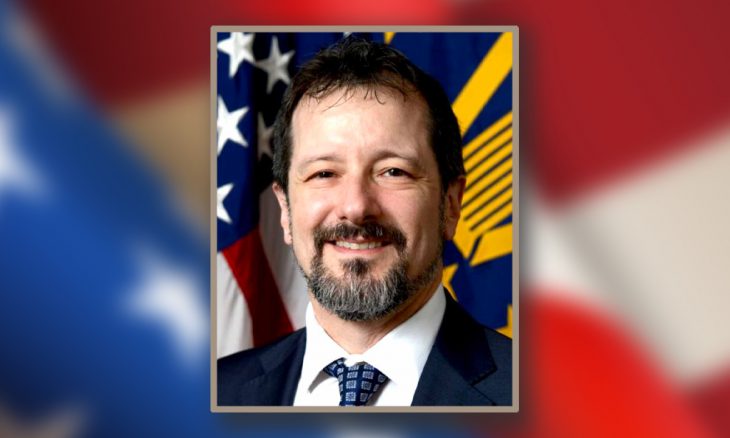Sean Kirkpatrick’s Challenging Voyage in UFO Inquiry

Sean Kirkpatrick’s tenure at the helm of the Pentagon’s UFO investigative unit, the All-Domain Anomaly Resolution Office (AARO), was marked by unexpected turbulence. Upon assuming his role in 2022, Kirkpatrick encountered an onslaught of personal threats and challenges, highlighting the intense public interest and controversy surrounding the topic of UFOs.
Unprecedented Challenges
Kirkpatrick’s journey was fraught with adversity, including threats to his family’s safety and breaches of his digital privacy. These experiences were far more severe than any he faced in his previous intelligence role, underscoring the unique contentiousness of UFO research.
Decision to Depart
After enduring these challenges for over a year, Kirkpatrick resigned in December, shortly after AARO published a pivotal report. This document, which Kirkpatrick helped craft, found no evidence supporting the presence of extraterrestrial technology in UFO sightings, stirring considerable debate within the UFO community.
Clash with UFO Lore
The report’s findings were in stark contrast to claims made by David Grusch, a former intelligence officer who alleged that the U.S. government had been concealing alien spacecraft. These claims had fueled widespread speculation about imminent government disclosures of extraterrestrial evidence.
Skepticism vs. Belief
Kirkpatrick’s approach to UFO investigations was characterized by a reliance on evidence and a skeptical eye toward unfounded claims. Despite efforts to engage with and investigate Grusch’s allegations, no substantial evidence emerged to validate the sensational claims of extraterrestrial technology.
The UFO Lobby
Kirkpatrick observed that the most fervent UFO speculation often originated from a small, interconnected group of individuals, a phenomenon he viewed as part of a larger narrative that recurs every few decades without substantial evidence.
Modern UFO Fascination
Tracing back to the origins of the current UFO fascination, Kirkpatrick pointed to programs like the Advanced Aerospace Threat Identification Program (AATIP) and its associated lore. Despite significant financial investments and high-profile attention, these programs failed to produce concrete evidence of extraterrestrial phenomena.
Pursuing Transparency
Kirkpatrick highlighted the tendency of UFO sightings to be explained by mundane phenomena, emphasizing the role of belief systems in perpetuating UFO myths. He assured that any genuine evidence of extraterrestrial activity would be promptly disclosed, promoting transparency over secrecy.
